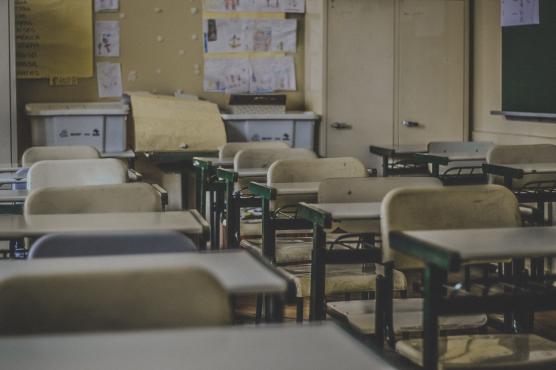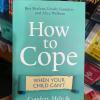17 April 2020
Dear Mrs Kerr-Dineen,
First of all, we would like to express a sincere hope that this letter finds you in good health, and that you are coping with the unprecedented stress of the current situation. We would, however, like to express a few concerns regarding the assessment model which was announced on Friday morning. The concerns below may be marshalled into three categories: concerns about the structure of the exams, concerns about the effects they will have on grades and work loads, and finally, and most importantly, concerns about the mental health issues this statement has given rise to. We hope that this letter will be read in the spirit in which it was intended, and that a reply will be given at your earliest possible convenience. We also trust that the highlighting of the April 15th guidance of Ofqual does not constitute a basis for disregarding the legitimacy of the concerns raised herein.
The first concern is that these online assessments are inherently subject to malpractice and as such do not, and cannot, represent the true abilities and potential of the students. Not only do some students have the benefit of siblings or parents well-versed in their subjects, but almost all of the pupils have access to the internet, which will surely limit the effectiveness of the tests as a measure for real knowledge and attainment. Could the school clarify its position on this, and its mechanism to prevent potential cheating and ensure a true examination is taking place? Furthermore, it cannot have escaped the notice of the school that these assessments are alien from all past forms of examination. This is not only due to the aforementioned potential for malpractice, but also the open-book nature of the exams. Given that mocks were held two teaching weeks ago in exam conditions, it seems that these offer a better insight than the proposed assessments, even when considering the fact that some pupils may not have shown their full range of ability in the former. We are therefore concerned that these assessments will not constitute a real indicator of the academic attainment of the students. This is further underlined by Ofqual’s statement that “The Head, as Head of Centre, ... must confirm with the examination board that the information submitted is a true representation of pupil performance.” Is the school really in a position to confirm this with exams that are not only open-book, but also wide open to cheating? We cannot help but feel that it cannot, and as such would like some reassurance of the rationale of this policy. It cannot help but seem to us that compulsory online assessment is not the answer at this time.
This leads onto the second point of concern: while we understand completely the concern that some pupils may not have done themselves justice in the mock examinations, Ofqual’s mechanism for remedying this is both less open to malpractice and less open to investigation. If students are unhappy with their predicted grades as they stand now, they are entitled to take the exams set aside for after the summer. This will allow them to achieve a potentially higher grade with no questions asked as to the legitimacy of the process. In contrast however, Ofqual stated that ‘Where additional work has been completed after schools and colleges were closed on 20 March, Heads of Centre should exercise caution where that evidence suggests a change in performance.’ Given that the school already has evidence from across two years of learning to justify the grades as they stand, it seems that the only purpose of these assessments can be to justify a raise in prediction. Therefore, if they do meet this goal, it seems that Ofqual will not regard the school favourably. If they do not meet this goal, we question the merits of holding compulsory exams for all exam year pupils. This is especially relevant when it comes to the vast majority of students who are happy with at least one of their predicted grades. If the student is satisfied, and teachers have evidence from across two years of teaching to justify it, as well as results from mocks, why should they be forced to undergo yet another set of exams and hoops to jump through to prove that they deserve it? Ofqual has already demonstrated that this approach would be satisfactory to them –– “There is no requirement to set additional mock exams or homework tasks for the purposes of determining a centre assessment grade” –– so why should the school enforce compulsory assessments on students who have time and again proven that they deserve their grades, and have worked incredibly hard to achieve them? The fact that past work, mocks, and the knowledge of teachers concerning their pupils seems to not be enough is a great worry to the signees of this letter, and we cannot help but feel that students are chasing the mirage of success; that whatever they do simply will not be enough. Surely it is more prudent that students who wish to prove themselves be given the chance to do so in optional exams. To make these exams compulsory feels oppressive and unnecessary.
We also wish to raise the issue that this policy not only seems to flout government advice, as a recent Times article indicated, but also is not in line with the policies of other private schools in kinship with Oundle. The following is a short list, by no means conclusive, of independent schools that we have heard have not decided to set extra compulsory assessments:
- Rugby School
- Eton College
- Radley College
- Uppingham School - Stowe School
- Oakham School
- Repton College
- Glenalmond College - Canford School
- Harrow School
- Shrewsbury School
We feel that this schism with the trajectory of fellow institutions is a concerning one. Not only does it reflect a stunning difference in terms of policy, but also will doubtless affect the morale and drive of students, as the knowledge that not a single peer is following the same path is a lonely and unhelpful one, to say the least. Similarly, we question the need for these extra assessments in the face of the choices of our educational peers: if they are able to fairly rank their pupils without these exams, why can’t Oundle do the same?
It is also a matter of great concern that students are losing valuable time to do super-curricular learning to prepare them for their further education and for life. The question of this has been raised multiple times throughout this crisis, and was broached as the likely way forward in a prefects’ meeting on March 19th, but with every edict this seems to be slipping away more and more. This is an unprecedented opportunity to learn beyond the curriculum in areas that are of interest to pupils and teachers, and an opportunity to get ahead on reading and learning for university courses. Many pupils have already been using this time to achieve that, prioritising their further education over syllabuses for exams which will no longer take place, but the imposition of these assessments seems to be putting that to a halt for the foreseeable future. The signees of this letter are concerned that this time is not being utilised for the greatest educative benefit of the students in a way that many of the above schools and colleges have chosen to, and worry that this may not only damage the mental health of Oundle’s exam year pupils, but also will disadvantage them relative to the more prepared pupils of other schools. Could the school clarify why these assessments are a higher priority to the broader learning of its students, broader learning that programs such as Learning for Life and the General Studies Lectures have been such wonderful examples of?
Finally, we also feel that this new policy does not reflect the care for student mental health that the school has historically been such a vocal advocate of. We absolutely applaud Oundle’s concern for the mental well-being of your students, but cannot help but feel that this new policy is more stress inducing than ever. There are many of us who once again have had to deal with the bitter turmoil of emotion and stress stirred up by the knowledge that the work done thus far is not good enough, that more work is required, and that the dream of extra-curricular and further learning seems to be well and truly dead. This is a great shame especially given that this confirmation has been given a mere three weeks before the assessments begin for A level students, and just over two weeks for GCSE students, and we wonder why this guidance was not published before. While students were told to “revise as normal” it is clear that this is quite impossible without an idea of what one is revising for. Similarly, many students are living in homes that are feeling the strain of Covid-19, in one way or another, and to expect that these students should sit assessments to justify themselves seems harmful. Some students are suffering from the loneliness of isolation, many are crammed into a house with parents working from home, and most are, for myriad reasons, unable to work up to the same standard as we all would want. While in theory the ability to claim extenuating circumstances may seem to be a remedy for this, it bears remembering that the damage of this disease reaches every one of us, and has corrupted each of our lives. To add to this strain the worry of yet more exams “important” to the final grade is without a doubt more harmful to the mental health of students than missing the “memorable rite of passage” of final exams. Students have had nearly a month to accept with their lack of a final term, and reintroducing the prospect of exams does not, we feel, help give students closure, but reopens potentially painful wounds. The desire to help each student through this trying time, and to keep all students close members of the Oundle community is a commendable one, but we cannot help but feel that instituting compulsory assessments is not the best way to do it. This policy, rather than continuing the school’s long tradition of caring for its pupils, has actually worsened the mental state of many of the students, and is another worry to add to an ever growing list. We feel that the process itself is flawed, that it leads to unnecessary stress and worry, and that it is not in line with our wishes, the policies of other schools, and the edicts of the Government. Again, we sincerely hope that this brief summary of concerns is received by you in good health and that you are able to give us an answer soon.
Yours sincerely,
The signees of this letter.
















